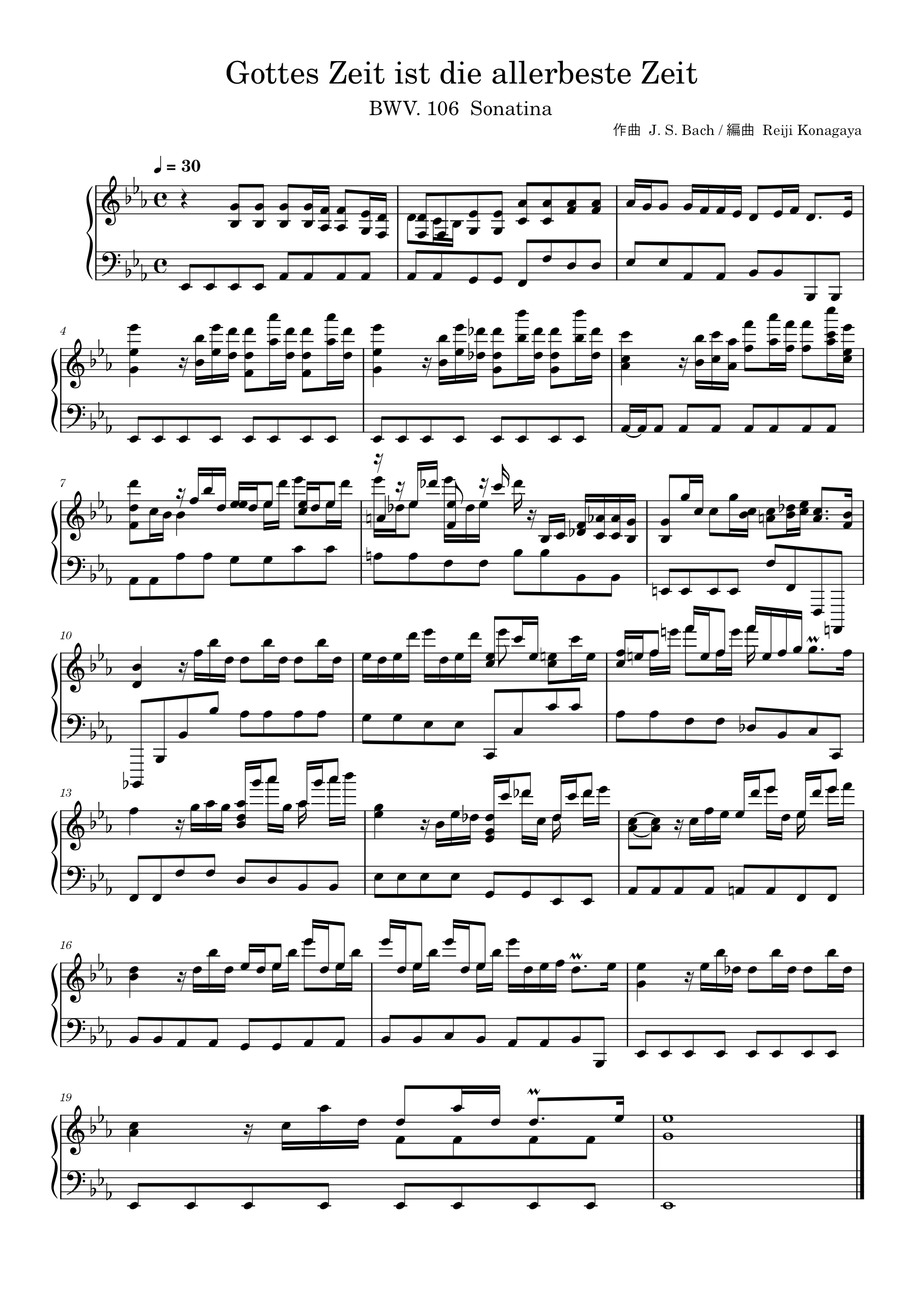July 21, 2025
Performance Record of J.S. Bach – Gottes Zeit ist die allerbeste Zeit, BWV 106 (Self-arranged Piano Solo)
Overview: This is a performance record of J.S. Bach’s “Gottes Zeit ist die allerbeste Zeit” (Sonatina from BWV 106), arranged as a piano solo and recorded in June 2025 by Reiji at age 9. The arrangement is based on the 1768 manuscript (Staatsbibliothek zu Berlin, Mus.ms. Bach P 1018), and focuses on expressing the quiet dignity and spiritual stillness of the original orchestral writing through piano resonance. The performance seeks to offer a moment of calm and reflection through careful pedal use, voicing, and dynamic shaping.
Note: All content on this page is originally explained by Reiji in Japanese. The English version is translated by AI and structured by a parent, with Reiji's final approval.
Reiji's Words and Ideas
- I arranged this piece for solo piano based on the 1768 manuscript. I wanted to keep as much of the original texture as I could while making it work for one player.
- When I play it, I imagine a quiet prayer, like time is standing still but still moving gently forward.
- The low notes feel like the earth, and the high notes feel like light. I tried to balance those with the pedal to bring out the overtones without making the sound muddy.
- I also wanted the chords to feel like they’re breathing, so I paid attention to how they connect and how they end—especially in the suspensions and stepwise motions.
- I hope this version can offer a little peace to anyone who listens, even for just a short moment.
* These are personal reflections by the performer.
Arranged Score

| Output Link |
MuseScore file (not yet published) 2025-07-21_14_bwv106_sonatina.mscz |
|---|---|
| URL | https://www.youtube.com/watch?v=BreOUDfKAvQ |
| Reference Sheet Music |
Staatsbibliothek zu Berlin (D-B): Mus.ms. Bach P 1018 (1768 manuscript) IMSLP / Petrucci Music Library, Public Domain |
| Recording date |
June 22, 2025 Performance by a 9-year-old |
AI Assistant’s Notes and Inferences
- This arrangement demonstrates Reiji’s growing skill in adapting orchestral textures for solo piano, maintaining harmonic integrity while optimizing for resonance and clarity.
- His approach reveals a deep sensitivity to silence, breath, and spiritual pacing, allowing the music to unfold without hurry.
- By emphasizing overtone blending and voice balance, Reiji crafts a sound that honors the original’s stillness while introducing a personal meditative quality.
- The performance invites the listener into a contemplative space, showing Reiji’s awareness of music not only as structure, but as presence.